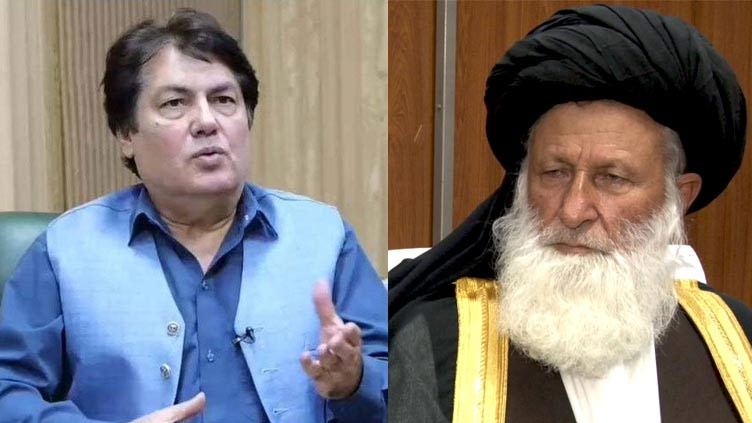The job of considering and improving the reform recommendations falls to the interministerial committee.
- Preliminary government to lay the foundation for structural reforms proposed by FBR.
- The IMF has suggested that the FBR chairman have a set term.
- The goal of Customs restructuring is to facilitate trade.
ISLAMABAD The Federal Board of Revenue (FBR) will be redesigned and digitalized, and a federal cabinet meeting led by caretaker prime minister Anwarul Haq Kakar will discuss this, The News reported. This is in opposition to the recommendations made by the International Monetary Fund (IMF) to improve tax administration.
A few shocking revelations revealed that the caretaker arrangement has used a subpar governance structure while in place.
The cabinet meeting’s minutes mentioned that the forum had formed an inter-ministerial body that would be convened by the finance minister with ministers of foreign affairs, privatisation, law and justice, energy, commerce, IT and telecommunications. The meeting also considered the summary submitted by the revenue division ‘Restructuring of the Federal Board of Revenue and Digitisation’. The committee was tasked with deliberating on the reform proposals and refining them for consideration by the cabinet in its next meeting.
The minutes state that the Federal Board of Revenue (FBR) shall (i) make the tax return form simple enough for the common person to understand and fill out; and (ii) reduce its length to no more than two pages, with provisions for supplementary information where required.
According to the official minutes of the most recent cabinet meeting, “Given its constitutional and legal mandate, the caretaker government would only carry out the groundwork for the Federal Board of Revenue’s structural reforms, keeping in mind the public interest, but legislation to effect these reforms would be left to the newly elected government.”
Now, the issue is raised: why were all the efforts used if there was a pointless exercise considering the minutes of the most recent cabinet meeting?
In contrast, the IMF’s Technical Assistance Report on Revenue Administration Diagnostic said that it fully supports and encourages the recommendations to transform the FBR into a semi-autonomous revenue authority.
The IMF study, written by Robert Woods, a specialist in the Fund’s Fiscal Affairs Department, outlined a plan for the revenue authority’s future and mentioned that the government-appointed task force had produced various suggestions for restructuring the tax administration.
The FBR might be reorganised as a federal tax agency with integrated links to all provincial tax agencies, or it could be transformed into a single national tax body to oversee all federal and gradually provincial taxes.
the creation of the tax authority as a revenue authority with a single-line budget that operates on a performance-driven, semi-autonomous basis and has its own hiring, management, and service regulations.
By establishing an independent board for tax oversight and administration, it is necessary to guarantee sound governance and performance management. It suggested giving the head of the tax authority a set term of office.
Either by separating Customs from the FBR to form a customs and border control authority under the finance ministry under its board’s supervision, or by creating a single reporting head for Customs within the tax authority, the restructuring of Customs will concentrate on trade facilitation, border control, and anti-smuggling operations. Additionally being considered is the idea to implement digital withholding and electronic invoicing as a means of digital revenue administration. Additionally under consideration is the suggestion to improve the information technology support for digital administration.
The FBR restructuring plan of her choosing has been relentlessly pursued by the acting finance minister, who has exerted pressure on it to state in the summary that the interministerial has extended support for the revamp plan.
To provide the federal cabinet an opportunity to make an informed choice, the FBR members insisted that they include in the summary that there is strong opposition to the reorganisation plan. However, pressure existed to convey through the summary that everything was OK.
The FBR stated unequivocally that they would not send the summary until they had the most recent cabinet meeting’s minutes. Without having perused the most recent meeting minutes, how were they supposed to follow the verbal directives?
The formal minutes of the most recent Federal Cabinet meeting, in which an interministerial group was established to further discuss the proposal for the FBR reform, were delivered to the FBR on Monday night.
Previously, the FBR chairman and secretary of revenue had declined to draft and provide a new summary until they received the official minutes of the most recent cabinet meeting.
There were concerted efforts underway to persuade the law minister to retract his remarks regarding the caretaker government’s incapacity to enact significant legislation, which required the government to amend the current tax code by 1010.
With the exception of Ejaz Gohar, all caretaker ministers had opposed the idea of an FBR redesign, hence this Inter-Ministerial Committee proved to be another disaster. But Gohar had also brought up the issue of significant under-invoicing during the formal meeting. The minister of international affairs made the fewest reform recommendations, although he did make three or four recommendations on how to put them into practice to increase tax efficiency.
The minister of energy has suggested creating a new tax body and doing away with the FBR. The minister of law had objected to these significant legal modifications, claiming that the caretakers lacked the authority to enact such laws.


 Latest News3 days ago
Latest News3 days ago
 Latest News2 days ago
Latest News2 days ago
 Latest News2 days ago
Latest News2 days ago
 Latest News2 days ago
Latest News2 days ago
 Latest News3 days ago
Latest News3 days ago
 Latest News2 days ago
Latest News2 days ago
 Latest News2 days ago
Latest News2 days ago
 Latest News2 days ago
Latest News2 days ago
























